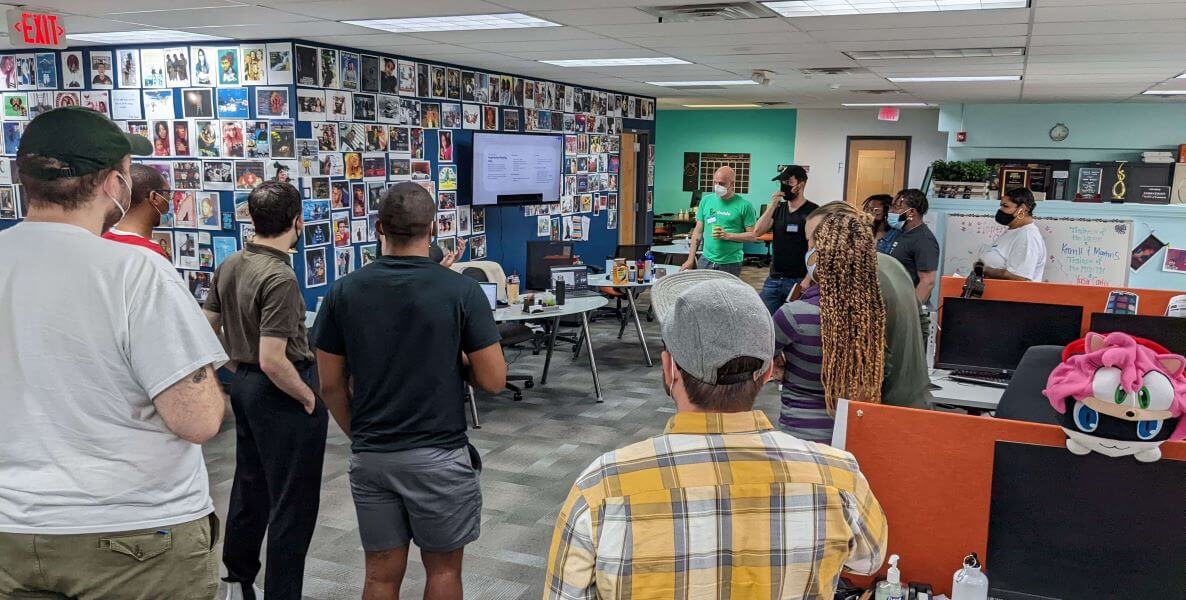In an age when digital rules, many of us may take for granted our ability to connect to what we need through our access to reliable, high-speed internet. But, this privilege does not extend to everyone.
According to the World Economic Forum, 21 million people in the United States lack connection to high-speed internet. In Philadelphia, 84 percent of households have home high-speed internet connections, but only 71 percent of households whose annual incomes are $20,000 or less subscribe to broadband.
Of the non-subscribers, 56 percent listed cost of monthly fees as the reason. In 2022, that cost stands in the way of one’s ability to access job recruitment, educational resources, health resources, news, personal lines of communication and more.
The digital divide is not a problem of the number of computers or high-speed internet, it’s a problem of fairness and people.
President Biden’s administration has made it a priority to make internet access accessible to those of all income status. In May, the administration announced new commitments from 20 commercial brand internet providers — including Philadelphia’s own Comcast — to help close the gap by lowering the cost of high-speed internet for millions of Americans.
This all stems from the very real and essential idea that high-speed internet is no longer a luxury, but a necessity. And, without it, those from lower income status, including those experiencing poverty, will lack the tools they would require to break out of cycles of financial hardship.
With a focus on technology, skill development, real-world job experience, and trauma-informed care, Hopeworks propels young adults into long-term living wage careers that put them on the path for healing and financial stability. And, a large portion of what we do involves building a bridge between those individuals and the digital world.
We’ve seen the impact of, and have been working to tackle, the digital divide — the growing gap between people who do and do not have reliable access to high-speed, high-quality, and affordable internet service — long before the pandemic exacerbated the gap. And, as the divide continues, our experience has taught us a few ways that the greater community can join in on the fight.
Acknowledge digital privilege where it exists
As addressed previously, access to high-speed internet is a necessity. Therefore, having access to it when others live without, is a privilege. This is even further compounded by the fact that professional and personal growth opportunities are often limited to those with such access. By acknowledging where you have privilege, it is far easier to see — and subsequently address — where this massive inequity lies. And, like all other forms, if we don’t check our digital privilege, this cycle of inequity is bound to continue.
Connect with the human aspect of the divide
For every internet connection that isn’t established, is lost, or is disconnected due to lack of financial resources, there is a person (or many) that are removed from the ever-present and prominent digital community. So, if we conceptualize each lost internet connection or “household without a laptop or internet connection” as an actual person, a family and a lost opportunity with a huge story behind that digital divide, we can start solving the problem in a real way.
Share the stories of these lost connections
A critical part of addressing the inequity that occurs from the digital divide and connecting with the human nature of it is amplifying the voices of those who are disconnected.
For example, our team at Hopeworks, in partnership with Mural Arts Philadelphia and EPAM, hosted our annual Hackathon in May, which focused on the digital divide. During the event, volunteers worked on storyboards and captured content to produce an augmented and virtual reality experience. This includes an online repository for individuals in Camden, New Jersey and Philadelphia to share their experiences of the digital divide and how to solve it. Not only will these stories exist online, but they will also form a key component of an upcoming pair of murals that will be developed in Philadelphia and Camden. Visitors to the mural will be able to use their smart devices to see and experience these online stories as part of their experience.
Remember that it’s a community problem, not just an individual one
In building a more inclusive digital community, our geographical communities must step up to the plate as well. Through partnerships and programs that provide opportunities for digital access, we can provide better access to resources for, and therefore a better state of, community employment, health and wellbeing. Overall, working to build a stronger, more connected community online and in person.
As we continue to work towards mending the digital divide through access to high-speed internet along with digital devices, awareness is the first step. The digital divide is not a problem of the number of computers or high-speed internet, it’s a problem of fairness and people. And now is the time to build an equitable broadband future where we are all connected.
Angel Serrano, CFRE is the Director of Development at Hopeworks Camden, a nonprofit organization that connects young professionals to life-changing opportunities using technology, education, and entrepreneurship. The Citizen welcomes guest commentary from community members who stipulate to the best of their ability that it is fact-based and non-defamatory.
![]() MORE ON ACCESS AND TECH FROM THE CITIZEN
MORE ON ACCESS AND TECH FROM THE CITIZEN
The Camden-based job training and placement nonprofit Hopeworks is expanding its goals to support small businesses and fight regional poverty, hundreds of jobs at a time




